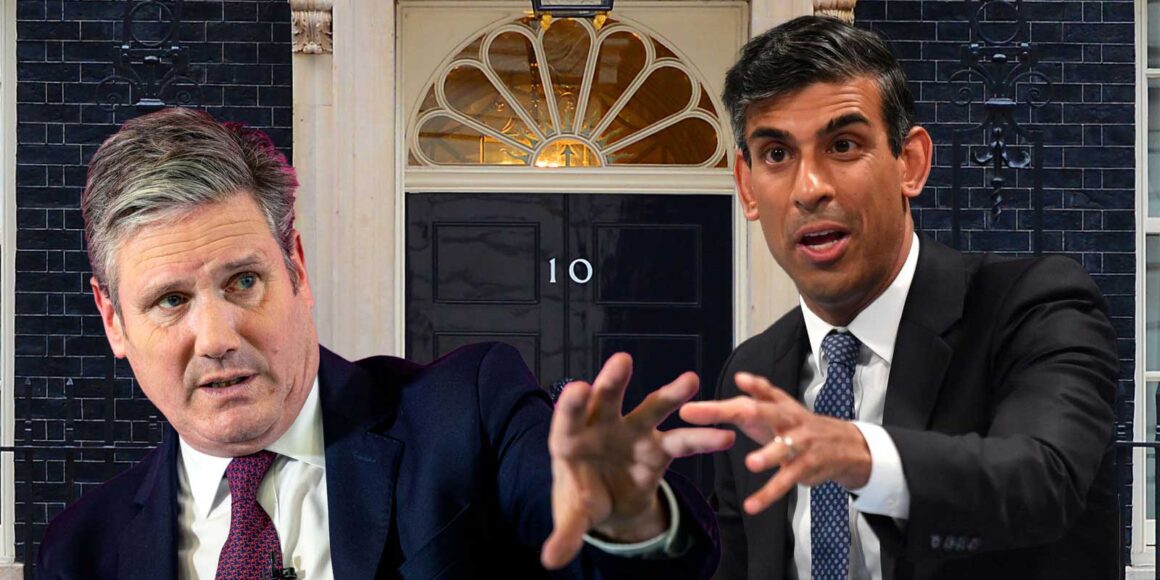

April 2023 Editorial
RISHI SUNAK and Jeremy Hunt are notching up successes over their enemies in the Tory Party, the bitter cliques around Boris Johnson and Liz Truss. They have defeated both the demands for a further clash with the EU and Biden over the Northern Ireland Protocol and a return to tax cuts in the Budget.
The ultra-Brexit Tory right has been disciplined and the new Tory leadership is preparing the ground for a general election next year with vigorous campaigns on law and order (new anti-union laws, restrictions on the right to protest, new anti-social behaviour orders), refugee and migrant scapegoating (Illegal Migrants Bill, Nationality and Borders Bill), and a conflict with the Scottish nationalists (independence referendum and the Gender Recognition Act).
Sunak’s big breakthrough was securing a massive majority for the Windsor Framework, which resets UK-EU relations. He was aided in facing down the DUP headbangers by geopolitical changes wrought by the Ukraine war, which has, at least for now, obliged the Franco-German-led EU to accept US leadership and, consequently, rendered rabid Tory hostility to the EU inimical to the interests of their Atlantic overlord.
While Sunak was indeed an ardent supporter of Brexit, he did not share the reactionary obsessions and prejudices of the hard-line European Research Group. Instead, he belonged to that camp which advocates a quite coherent strategy: to free British capital from EU regulation, avoid continental integration and, instead, mobilise Britain’s financial institutions globally under US protection and leadership. This required putting an end to politically counterproductive rows over the Irish border.
Sunak and Hunt are gambling on a substantial reduction in the rate of inflation over the year ahead. In this they are being aided by the Bank of England whose continued interest rate rises are aimed at ‘cooling the economy’, i.e. triggering a recession.
Labour retains a substantial lead in the polls, but with the next election as much as 20 months away, the Tories retain many advantages. Firstly, the electoral map is being redrawn (gerrymandered) to the Tories’ advantage. Secondly, the failure of the unions to lead a real fight over pay could allow Sunak to emerge victorious by making minor concessions (as most of the health unions are promoting now). Thirdly, the continued running down of the NHS will promote private healthcare, reducing the universal status of the NHS and the welfare state more generally as a mobilising factor in the election. Finally, Hunt’s conservative budget means the Tories are accruing a war-chest for pre-election giveaways in the autumn and spring.
Starmer’s strategy is based on the assumption that further dramatic declines in living standards will make the Tories ever more unpopular. He calculates that policies to control immigration, tough talk on asylum seekers and anti-social behaviour will bring back the “red wall” and appeal to the media barons and sections of the business and financial elite.
That is not guaranteed. If Sunak can impose Tory party stability, deliver improved trade with the EU and provide some tax breaks, that could claw back electoral credibility. Those elites know that, despite Sunak’s intentions, a Labour victory could encourage expectations of improved living standards, repeal of anti-union laws and rebalancing of taxation against the rich.
All this means that ‘waiting for Labour’, the official, if generally unspoken, political ‘strategy’ of the trade union leaders is totally bankrupt. What workers need is a dramatic change of direction: a real coordinated fight to reject below-inflation pay cuts, a serious campaign against the attempt to outlaw public sector strikes and, above all, a political struggle to force Labour-affiliated unions to demand, with threats, the adoption of a pro-working class emergency programme to restore living standards, end militarism abroad, and place the big banks, utilities, transport and health and social care sector under public, democratic control to address the immediate health and climate crises.
The unions who pay millions to Labour need to make it clear that they will not swallow a Blairite manifesto or, for that matter, a right wing Labour government. That could be the launch pad for replacing a thinly disguised capitalist party with a genuine workers’ party.